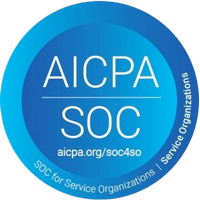It’s no secret that healthcare onboarding is a huge factor in helping workers feel prepared, comfortable, and capable of providing quality care. To help healthcare professionals onboard more effectively, Apploi recently launched a free onboarding ebook, reviewing the whys and hows behind every step of healthcare onboarding.
But have you given adequate thought to how you onboard non-clinical healthcare staff? Non-clinical onboarding is just as important as clinical onboarding, but it is often overlooked, to the detriment of healthcare businesses.
We Need Better Healthcare Onboarding for Every Role
Understandably, healthcare employers can put a lot of weight on clinical onboarding. But non-clinical healthcare onboarding is just as important.
Onboarding is necessary to protect the privacy and safety of workers and patients alike. In your healthcare facility, every worker needs to understand and comply with HIPAA regulations.
Many non-clinical workers deal with patients’ personal health information. Even workers who don’t are still in a business place where sensitive information is shared. To protect patients and your facility, all workers need to understand how casual gossip might turn into a HIPAA violation.
And that’s not to say that compliance is the only reason for onboarding. Every single worker contributes to the patient experience in some form or another, from maintaining a clean facility to providing clear billing information. It also helps workers feel confident and comfortable in their positions. For these reasons, healthcare onboarding is vital to both patient satisfaction and worker retention.
Common Healthcare Onboarding Pitfalls
So what tends to go wrong during healthcare onboarding? Here are a few of the most common issues that may be affecting your new non-clinical hires.
Inefficient Onboarding
Onboarding should be informative without being exhausting. You don’t want basic training to drag on for months, and you certainly don’t want to be tracking down important documents when your new hire should already be working.
More efficient onboarding helps new hires feel comfortable with their duties quickly and frees up time for other aspects of orientation. In other words, by finishing onboarding in a timely manner, you create more time for social events and to share growth opportunities.
Getting Bogged Down in Paperwork
If your onboarding process is dominated by paperwork, you’re less likely to have a personalized onboarding experience. That means less job-specific training. Without this, your new hire will face a steep learning curve.
The right healthcare onboarding software can help reduce paperwork, or even get it completed during the hiring period. Handling paperwork before the hire’s first day (and automating it when possible) will improve the onboarding experience for both your new employees and your HR team.
Stopping at Legal Compliance
An effective onboarding strategy starts with understanding your goals. You’re not just onboarding because it’s the convention—there are probably specific things you need to accomplish.
One reason to onboard is to make sure your business stays in compliance. But that’s not the only reason. You’re also helping new workers acclimate, feel welcome, learn company policies, and understand what’s expected of them.
Onboarding is also critical to establishing a support system for new workers. Managers should take the chance to say hello and open lines of communication with recent hires.
It’s a major lost opportunity if you don’t dedicate some onboarding time to helping new hires integrate into your work culture. Social onboarding can be as simple as hosting a team lunch or coordinating a buddy system between new hires.
Forgetting the Future
Onboarding should set up new workers for ongoing success. This is the first moment to start laying the groundwork for career development and retention.
For non-clinical workers especially, the promise of career growth is huge. Non-clinical staff receive career support all too rarely. Without the ability to envision a career in your facility, there’s no reason for these employees to feel loyalty to your business. You can change that by creating leadership positions, offering further training, and discussing career goals as soon as possible. Even if career plans eventually take employees outside of your organization, this kind of development is vital to attracting workers and boosting job satisfaction.
How to Onboard Non-Clinical Healthcare Workers
What you should accomplish during non-clinical healthcare onboarding, from day 0 through the end of the first month.
Day 0
“Day 0” onboarding is what you accomplish before the employee starts work. Before the first day (or even during the hiring period), collect paperwork, finish background checks, verify experience, and send out HR training materials and the employee manual.
Also be sure that the new hire has everything they need for a successful first day. Clearly explain your dress code, parking information, and where the employee should report and check in. If you have an onboarding agenda prepared, send it to them.
Day 1
On their first day, make sure your new hire has time to meet with HR, review employee policies, and get any lingering questions answered. Start with a tour of the workplace. Ideally, pair this tour with introductions to different employees and departments.
Introduce your new hires to everyone they will be working with. Check that they know how to reach management with questions or concerns.
Coordinate with IT to make sure your employee can access any technology they need. To make the whole process easier, set up onboarding buddies. With a buddy system, workers have one more person to offer support and answer questions.
Week 1
Now that your employee has had the chance to warm up to their new environment, schedule a check-in specifically to discuss the week. New hires should have plenty of check-ins during onboarding, but they likely have more questions now that they’ve made it through initial training.
Schedule time between the new hire and their supervisor to chat and review (a lunch date works). If relevant, verify that the new hire is comfortable with their new technology, and offer further IT training as needed.
First Month
At this point, your employee probably knows the lay of the land, has met important coworkers, and has gotten comfortable with their duties. Still, be sure they have regular check-ins scheduled so they have a chance to get feedback and raise questions.
If you’ve planned any 30-day goals, review those now. Set new goals for the coming days and months, and establish how you’ll track and reward success in the future.
How Apploi’s Healthcare Onboarding Technology Can Help
An effective healthcare onboarding software solution should simplify your process from start to finish. A solution like Apploi offers the following:
- Central management for important onboarding documents like offer letters and W2 forms
- Customizable offer letter templates
- Integrated background checks
- Vaccination verification and monitoring
- Credential checking at time-of-hire, and ongoing re-verification of licensure
Why Apploi?
Apploi is on a mission to help healthcare recruit, hire, and onboard more successfully. Our integrated suite of tools increases efficiency and reduces error, easing the transition from candidate to hire and making us the best onboarding software for healthcare.
Interested in learning more about how you can recruit, hire, and onboard healthcare staff quickly? Contact us today for a free demo of our leading talent management solution.





